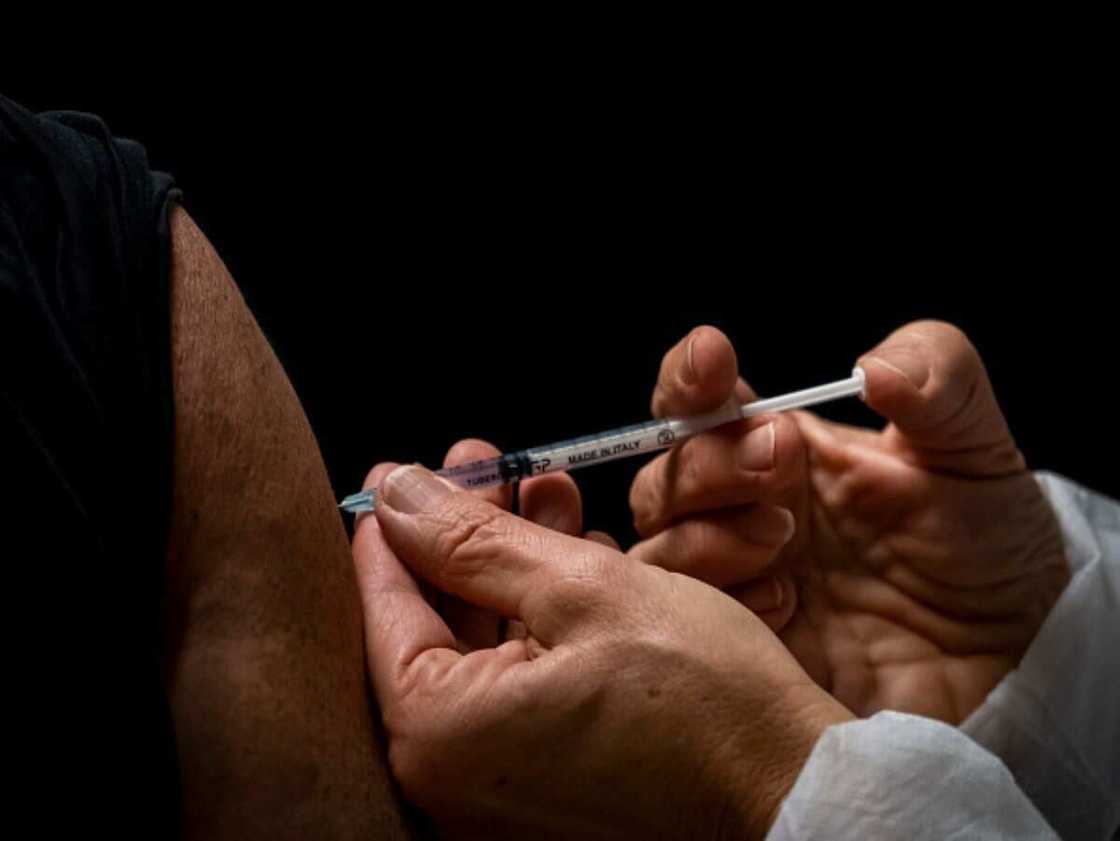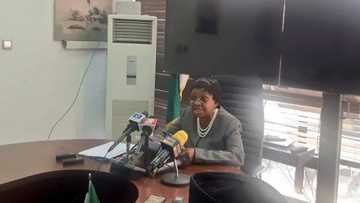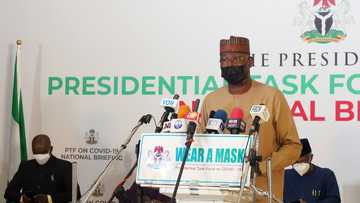NAFDAC lists 5 safety measures put in place for COVID-19 vaccines in Nigeria
- The safety of the COVID-19 vaccines coming into Nigeria is the prerogative of NAFDAC
- The agency has already commenced a massive public relations programme to inundate Nigerians on its plans so far
- Most importantly, NAFDAC is putting in place measures to ensure that the vaccines do not get to the wrong hands in the country
PAY ATTENTION: Join Legit.ng Telegram channel! Never miss important updates!
Nigeria will receive its first batch of the COVID-19 vaccines in March 2021 according to federal authorities.
To ensure the safety of the vaccines and guide against abuse by manipulative elements, the National Agency for Food and Drug Administration and Control (NAFDAC) has commenced a campaign to sensitise Nigerians on its plans.
Already, NAFDAC has informed Nigerians that it has not received any application from COVID-19 vaccine manufacturers, stressing that if NAFDAC does not approve, the public should not use any vaccine.

Source: Getty Images
PAY ATTENTION: Install our latest app for Android, read best news on Nigeria’s #1 news app
NAFDAC has also made it clear that vaccines should not be ordered by any company or corporation in Nigeria.
However, NAFDAC has listed several measures put in place to ensure the vaccines are well handled, distributed, and administered.
They include:
1. Emergency use of authorisation and licensing
NAFDAC will use “Reliance” or “Recognition” to expedite Emergency Use Authorisation for vaccines already approved by more matured regulatory authorities. Furthermore, the full dossier submitted by the manufacturer or Market Authorisation Holder will be thoroughly reviewed by the vaccine committee that is made up of multiple directorates in the agency.
2. Post-marketing active pharmacovigilance or phase 4 clinical trial
The safety of the COVID-19 vaccine is premium to NAFDAC. This is why active pharmacovigilance is being used. NAFDAC will note clinical peculiarities in form of Serious or Adverse Events Following Immunisation in the dossier or application as a guide and caution for what to look out for in each subject after immunization.
3. Collaboration with sister agencies and partners
NAFDAC initiated a multi-stakeholder collaboration with the National Primary Health Care Development Agency, Nigeria Center for Disease Control, UNICEF, World Health Organisation, and ministry of health. The focus is to use a holistic approach for the effective immunization or delivery of the vaccines and monitor any Adverse Events Following Immunisation (AEFIs).
4. Tracking and tracing of the vaccines
NAFDAC plans to also use the traceability with GS1 technology to monitor the vaccine distribution using the Global Trade Item Number (GTIN). The goal is to prevent fake vaccines from infiltrating the supply chain and to ensure there is no diversion. This effort will create a reliable and predictable supply chain.
5. Working at the continental level
NAFDAC is on the Regulators Steering Committee of African Union -3S (Smart, Safety Surveillance) with Ghana, South Africa, and Ethiopia. The Steering Committee is collaborating with the UK Medicines Healthcare Products Regulatory Agency through funding from Bill and Melinda Gates Foundation.
The goal is to use COVID-19 vaccines distribution and immunization as a pilot to actively monitor the distribution (with track and trace) delivery and monitoring of AEFIs of the vaccines at the continental level with the ultimate goal to create an African-based vigilance system for the safety of medicines.
Legit.ng had earlier listed 10 important facts about the COVID-19 vaccine here.
Meanwhile, on Friday, January 15, the federal ministry of health released new protocols for religious centres to adhere to.
The protocols include 12 updated guidelines for religious gatherings to follow to minimise the spread of coronavirus.
Covid 19: Should there be another lockdown? Nigerians react | Legit TV
Source: Legit.ng





